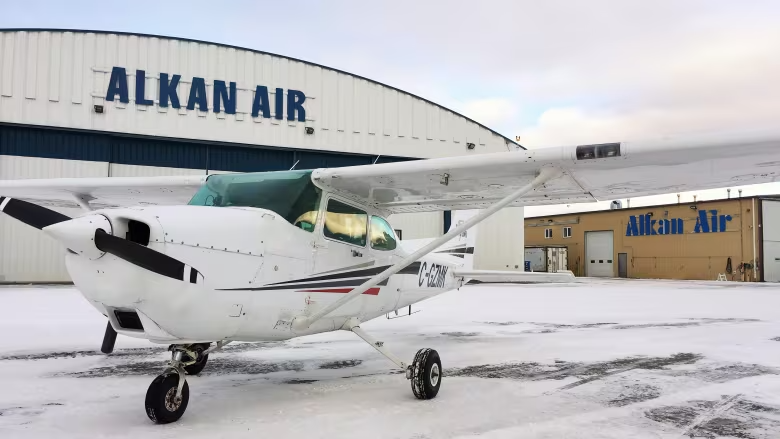Canada News
Remote flight school for First Nations to open in Faro, Yukon

The first offering from the new remote flight school will take place in Faro, Yukon. Harlan Schilling, deputy chief of the Daylu Dena Council in B.
C. said he and the other organizers tried to ‘think outside the box’ when it came to meeting the demand for pilot training in northern B.C. and Yukon. (Alkan Air via RCI)
By
Organizers say their goal is to offer the program in several communities
A new flight school for First Nations people living in remote communities of Yukon and northern B.C. is starting up at the Faro, Yukon, airport in September.
The organizers say their goal is to eventually offer the program in several communities, and tuition is free.
“It would be great to be able to offer this in all Yukon communities so that people don’t have to come to Whitehorse to become pilots,” said Lacia Kinnear, CEO of Yukon-based Alkan Air.
The program is a collaboration between Alkan Air, Ross River Dena Council, and Daylu Dena Council. It comes amid a nation-wide pilot shortage, which is especially pronounced in the North.
Since it’s in its first year, the pilot licensing program, which will be 14 months long, is still considered a pilot project. It plans to admit four students for its first cohort, which starts in September.
Alkan Air currently offers a flight school in the territory’s capital but Kinnear said that she was inspired to try something different after seeing how Yukon University began offering programs in remote communities, rather than asking all students to move to Whitehorse.
“[It] became an idea for us of, ‘Can we make that a reality with our flight school?’ and ‘Are we able to move our instructor and aircraft to our Yukon communities?’” she said.
The answer was yes.
The project is receiving funding from the federal government and a handful of mining companies.
Youth seek opportunities
The initiative also comes in response to seeing a demand for pilot licences from youth in remote communities.
Harlan Schilling, deputy chief of the Daylu Dena Council and CEO of the First Nation Centre of Excellence for Economic Development, said his phone has been “ringing non-stop” since news of the program was announced.
Schilling, who is a Canadian Forces veteran, said the idea for the program was sparked about a year ago when he himself looked into getting his pilot’s licence, but found there was nothing available close to his community.
“I had to relocate to Whitehorse if that was something I wanted to do,” he said.
He reached out to Alkan Air and started talking with Kinnear and other staff members about the possibility of offering a training program in his area, or some other rural community.
“It was just a couple of minds that sat down and came up with this idea,” he said.
“We just started calling around to see what communities would work with different airstrips and whatnot,” he added.
Schilling said that northern communities are likely to see social and economic benefits from having trained pilots because those pilots will be able to facilitate sectors such as tourism and health care.
Ambition is the most important quality they will be looking for in candidates, Schilling said.
“I’ve got great kids in every single Kaska community, in every community across the North. So if you just have a dream, [if it’s] something you wanted to do, even if … it’s scary, something new, I hope everybody applies,” he said.





















